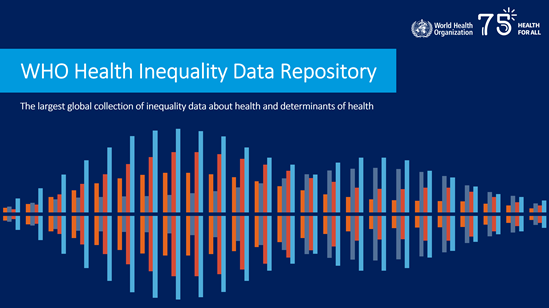On 20 April WHO launched the Health Inequality Data Repository, the most comprehensive global collection of publicly available disaggregated data and evidence on population health and its determinants.
The Health Inequality Data Repository (HIDR) contains datasets of disaggregated data covering diverse topics and dimensions of inequality, from a variety of publicly available data sources. It aims to make disaggregated data more accessible and navigable to diverse global audiences.
The data from the repository show that, in just a decade, the rich-poor gap in health service coverage among women, newborns and children in low- and middle-income countries has nearly halved. They also reveal that, in these countries, eliminating wealth-related inequality in under-five mortality could help save the lives of 1.8 million children.
The HIDR includes nearly 11 million data points and consists of 59 datasets from over 15 sources. The data include measurements of over 2000 indicators broken down by 22 dimensions of inequality, including demographic, socioeconomic and geographical factors. Topics covered include: the Sustainable Development Goals (SDGs); COVID-19; reproductive, maternal and child health; immunization; HIV; tuberculosis; malaria; nutrition; health care; non-communicable diseases and environmental health.
The repository also reveals inequalities in national COVID-19 responses. In 2021, in more than a third of the 90 countries with data, COVID-19 vaccination coverage among the most educated was at least 15 percentage points higher than among the least educated.


